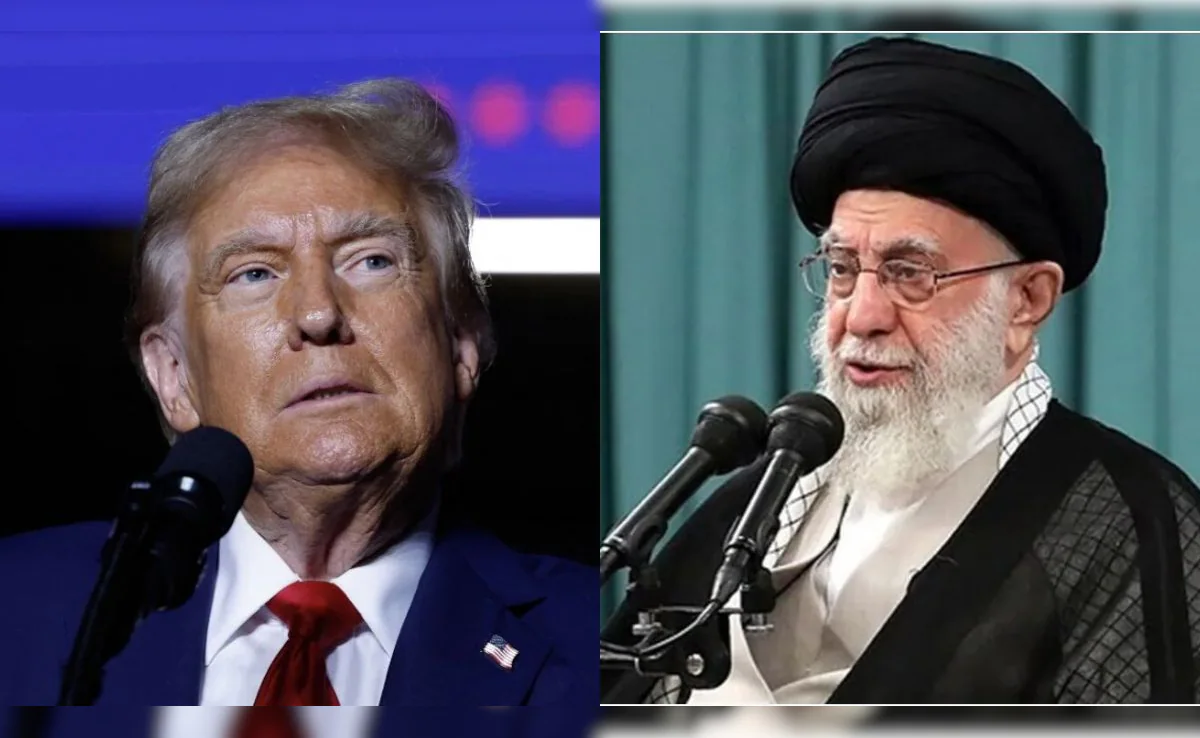Just hours after Iran’s Supreme Leader, Ayatollah Ali Khamenei, firmly declared that his country would “never surrender,” US President Donald Trump left everyone guessing by saying he might join Israeli military strikes on Iran — or he might choose not to.

Washington, D.C.
The tension between Washington and Tehran has been steadily rising. Recently, Khamenei directly warned both the United States and President Trump to stay out of the escalating Iran-Israel conflict, threatening that if America intervenes, it would suffer “irreversible damage.” In response, Trump kept his position vague, telling reporters that while military action is an option, it’s not the only one on the table.
Speaking to journalists from the White House’s South Lawn, Trump was asked whether the US military would back Israel to prevent Iran from developing nuclear weapons. He replied in his usual unpredictable style: “I can do it, I can not do it — nobody knows what I’m going to do.”
This statement echoes Trump’s well-known strategy of keeping adversaries unsure about his next move. It also comes at a time when the region is already on edge due to repeated threats, covert operations, and ongoing skirmishes.
Iran’s Defiance
Earlier that day, Ayatollah Khamenei responded strongly to Trump’s demands for Iran to surrender its nuclear ambitions without any preconditions. He dismissed Trump’s threats as laughable and said, “The American President threatens us with surrender. He should save his threats for those who fear them — the Iranian people are not afraid.”
This defiance highlights a standoff that has lasted for decades, with Tehran insisting that its nuclear program is for peaceful energy purposes, while Washington and its allies remain convinced that Iran wants the capability to build atomic bombs.
A Worsening Standoff
Just a day before, Trump had warned Iran not to test his patience, saying, “We don’t want missiles fired at civilians or our troops,” but adding that America’s patience has limits.
Meanwhile, Israel, Iran’s arch-enemy in the region, maintains close coordination with the US. Both nations, alongside other G7 countries, are united in one belief: Iran must never be allowed to acquire nuclear weapons. Israel has carried out secret operations for years, targeting Iranian nuclear scientists and sabotaging enrichment facilities. However, some of Iran’s most critical sites are buried deep underground or hidden inside mountains — making them nearly impossible to reach with conventional weapons.
The Secret Weapon
To destroy these hardened sites, Israel needs a special kind of bomb — the Massive Ordnance Penetrator (MOP), also known as the ‘bunker buster.’ This is the most powerful non-nuclear bomb in the US arsenal, weighing around 14,000 kilograms and designed to smash through layers of rock and reinforced concrete before detonating deep inside underground bunkers.
The catch? Only the US military’s B-2 Spirit stealth bomber can carry and drop this bomb. Each B-2 can carry two MOPs. A newer stealth bomber, the B-21 Raider, is expected to carry it too, but that plane is still under development.
Why This Matters
If Israel ever decides to target Iran’s deeply buried nuclear facilities, it cannot do so alone — it would need America’s bombers and bombs. Using the MOP would mean US stealth bombers would have to fly into Iranian airspace, leaving no doubt that America is directly involved in a military operation alongside Israel.
This scenario clashes with Trump’s image as a president who prefers “deals over wars.” He has long branded himself as a tough negotiator who favors diplomacy first but has also warned that he won’t hesitate to use force if talks fail. To show he means business, he has already moved two aircraft carriers — USS Carl Vinson and USS Harry S. Truman — near the Arabian Sea and stationed six B-2 bombers at the US base in Diego Garcia, a strategic island in the Indian Ocean.
How Close Is Iran to a Nuclear Bomb?
US officials, including Special Envoy Steve Witkoff, say that for civilian use, uranium only needs to be enriched to about 3.67%. Iran has blown past that limit — its enrichment level is now at 60%, dangerously close to the 90% needed for a nuclear weapon. “This cannot be allowed,” Witkoff stressed back in April, and Trump quickly backed him, saying, “Iran must abandon any idea of nuclear weapons. These are radical people — they cannot have nukes.”
What’s Next?
As tensions grow, the world is watching to see whether Trump will stick to diplomacy or decide that military action is the only way to stop Iran. For now, both the White House and Israel keep repeating the same message: all options are on the table — but only time will tell which one they choose.